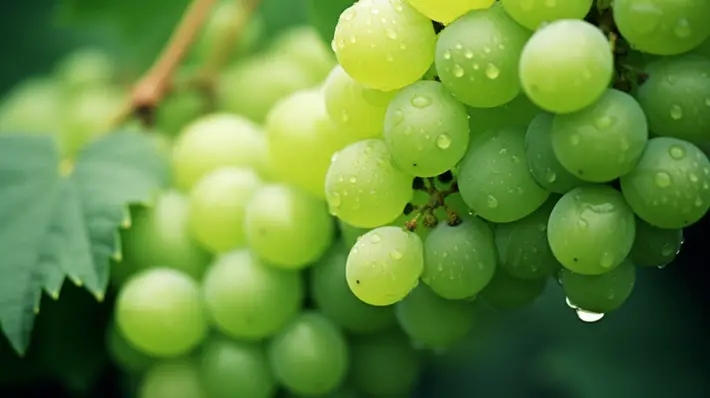Organic Wine vs Natural Wine

Are you a wine connoisseur looking for the perfect bottle to complement your palate? In the ever-expanding world of wine, two terms that have been making waves are “organic wine” and “natural wine.” These buzzwords have captured the attention of enthusiasts and health-conscious individuals alike, but what do they really mean?
In this comprehensive guide, we delve into the intriguing realm of organic wine versus natural wine, exploring their differences, similarities, and the impact they have on both our taste buds and the environment. So grab a glass, settle into your favourite armchair, and join us on this captivating journey through the vineyards as we uncover the secrets behind these intriguing wine categories.
What is Organic Wine?
Organic wine is a type of wine made from grapes that have been grown without the use of synthetic fertilisers, pesticides, or herbicides.
It is produced following strict regulations and guidelines set by organic certification organisations.
Organic winemakers avoid using chemical additives during the winemaking process. It contains zero or low level sulphites.
Benefits of Drinking Organic Wine
Organic wine offers several benefits compared to conventional wine:
● Higher levels of antioxidants: Organic wine is believed to contain higher levels of antioxidants, which can benefit overall health.
● Lower levels of sulfites: Organic wine generally has lower levels of sulfites compared to conventional wine, making it a better choice for those sensitive to sulfites.
● Healthier option: By avoiding synthetic fertilisers, pesticides, and herbicides, organic wine reduces the risk of consuming harmful chemicals.
● Environmental friendliness: Organic wine production promotes sustainable farming practices, reducing the impact on the environment.
● Authentic taste: With no artificial additives, organic wine often has a more natural and authentic taste.
● Natural Flavours and Aromas: Organic wine is often made with minimal intervention, allowing the natural flavours and aromas of the grapes to shine through. This results in a more authentic and enjoyable tasting experience.
● Support for Sustainable Agriculture: Organic wine production promotes sustainable agriculture practices, protecting the environment and supporting small-scale farmers. By choosing organic wine, you are contributing to the preservation of ecosystems and promoting a more sustainable future.
Organic Wine Certification
Organic wine certification is carried out by organisations that follow specific guidelines and standards.
Different countries may have their own organic wine certification programs.
Some well-known organic wine certifications include USDA Organic, EU Organic, and Demeter.
Organic wine producers need to meet certain criteria and pass inspections to obtain organic certification labels on their bottles.
How Organic Wine is Made
Organic winemakers focus on sustainable farming practices, using natural fertilisers and pest control methods. They avoid the use of synthetic chemicals and rely on organic alternatives to enhance the health of the vineyard.
During the winemaking process, organic winemakers carefully monitor and manage the fermentation process to maintain the wine’s purity. This involves controlling the temperature and oxygen levels to ensure optimal conditions for the wine to develop.
Additionally, organic winemakers avoid the use of chemical additives such as artificial colouring agents and flavourings. Instead, they rely on the natural flavours and characteristics of the grapes themselves.
The goal of organic winemaking is to create a wine that is as natural and authentic as possible, while also respecting the environment and the health of consumers.
Why Choose Organic Wine?
Choosing organic wine offers numerous benefits for both your health and the environment. Here are a few reasons why you should consider opting for organic wine:
● Sustainable and Eco-friendly: By choosing organic wine, you are supporting sustainable and environmentally friendly agricultural practices. Organic winemakers focus on using natural fertilisers and pest control methods, minimising the use of synthetic chemicals that can harm the ecosystem.
● Free from Harmful Chemicals: Organic wine is produced without the use of artificial pesticides, herbicides, or synthetic fertilisers. By consuming organic wine, you reduce the risk of ingesting harmful chemical residues that can be present in conventionally produced wines.
● Authentic Taste: The absence of artificial additives in organic wine allows it to have a more natural and authentic taste. You can enjoy the true flavours of the grapes without any interference from chemical substances.
● Healthier Choice: Organic wine is believed to have higher levels of antioxidants and lower levels of sulfites compared to conventional wine. By choosing organic, you are opting for a healthier product that may offer additional health benefits.
Make a conscious choice by selecting organic wine, and experience the satisfaction of knowing that you are enjoying a product that is not only delicious but also better for your health and the environment.
What is Natural Wine?
Natural wine is made using minimal intervention in the vineyard and winemaking process. It is produced with minimal additions or manipulations, allowing the wine to express its natural terroir and characteristics. Natural winemakers focus on organic and biodynamic farming practices.
The Process of Making Natural Wine
● Natural wine production involves minimal intervention in the winemaking process.
● Grapes for natural wine are often hand-harvested and fermented with native yeasts present on the grape skins.
● No additives or preservatives are used during the fermentation process of natural wine.
● Natural wine is typically aged in neutral containers, such as old oak barrels or concrete tanks, to preserve its natural characteristics
Differences between Organic and Natural Wine
The main difference between organic and natural wine lies in their production methods. While both organic and natural wines share similar principles, there are some key differences between the two:
● In terms of winemaking process, natural wine takes the concept further by avoiding any additives or technological interventions. Organic wine may still use minimal sulfites, while natural wine aims for zero added sulfites.
● Organic wine is produced following strict regulations and guidelines set by organic certification organisations. Natural wine, on the other hand, focuses on minimal intervention in both the vineyard and winemaking process.
● Natural wine is often described as more unique and unpredictable in terms of taste, while organic wine offers a more natural and authentic taste due to the absence of artificial additives.
Is Natural Wine Organic?
Natural wine can be made from organic grapes, but it doesn’t guarantee that the wine itself is certified organic.
Certification for natural wine differs from organic certification and focuses more on the winemaking process.
Some natural wines may contain sulfites due to the presence of natural sulphur compounds in grapes.
Natural Wine vs Conventional Wine
Conventional wine often uses synthetic chemicals, pesticides, and additives during the winemaking process, while natural wine avoids these artificial interventions. Natural wine is produced with minimal additions or manipulations, allowing the wine to express its natural terroir and characteristics.
Natural wine usually has lower levels of sulfites compared to conventional wine. Sulfites are a natural by-product of the fermentation process, but conventional winemakers often add additional sulfites as a preservative. Natural winemakers aim for zero added sulfites, resulting in a lower sulfite content in the finished product.
The taste and flavour profile of natural wine can be quite different from conventional wine. Natural wine is typically described as having more unique and unpredictable flavours, as it allows the grapes and fermentation process to dictate the final outcome. This can be a refreshing departure from the more standardised flavours often found in conventional wines.
Choosing the Right Wine for You
When choosing between organic and natural wine, it’s important to consider your preferences for taste, environmental impact, and health benefits. Here are some tips to help you make an informed decision:
● Taste Testing:
Take the opportunity to taste different varieties of both organic and natural wines to discover your personal preferences. Each type of wine has its own unique flavour profile, so it’s worth exploring different options.
● Environmental Impact:
Choosing organic wine supports sustainable and eco-friendly agricultural practices. If you value organic farming and want to reduce your environmental footprint, organic wine is a great choice.
● Health Benefits:
Organic wine is free from artificial pesticides and herbicides, reducing the risk of harmful chemical intake. If you prioritise consuming cleaner, more natural products, organic wine is a healthier option.
Consider these factors when making your decision and remember to enjoy the process of exploring the world of organic and natural wines.
● Flavour Profiles:
Both organic and natural wines offer unique flavour profiles and characteristics. It’s worth exploring and tasting different options to find the wine that aligns with your palate preferences.
Conclusion
In conclusion, both organic wine and natural wine offer unique benefits and characteristics. Organic wine is produced following strict regulations and guidelines, ensuring that the grapes are grown without the use of synthetic chemicals. It is believed to have higher levels of antioxidants and a more natural taste. Natural wine takes the concept further by minimising interventions during the winemaking process, allowing the wine to express its natural terroir and characteristics. While natural wine may not always be certified organic, it still offers a more environmentally friendly and authentic alternative to conventional wine. When choosing between organic and natural wine, consider your preferences for taste, environmental impact, and health benefits. Taste different varieties to discover your personal preferences and make an informed decision about the wine you choose to enjoy.










